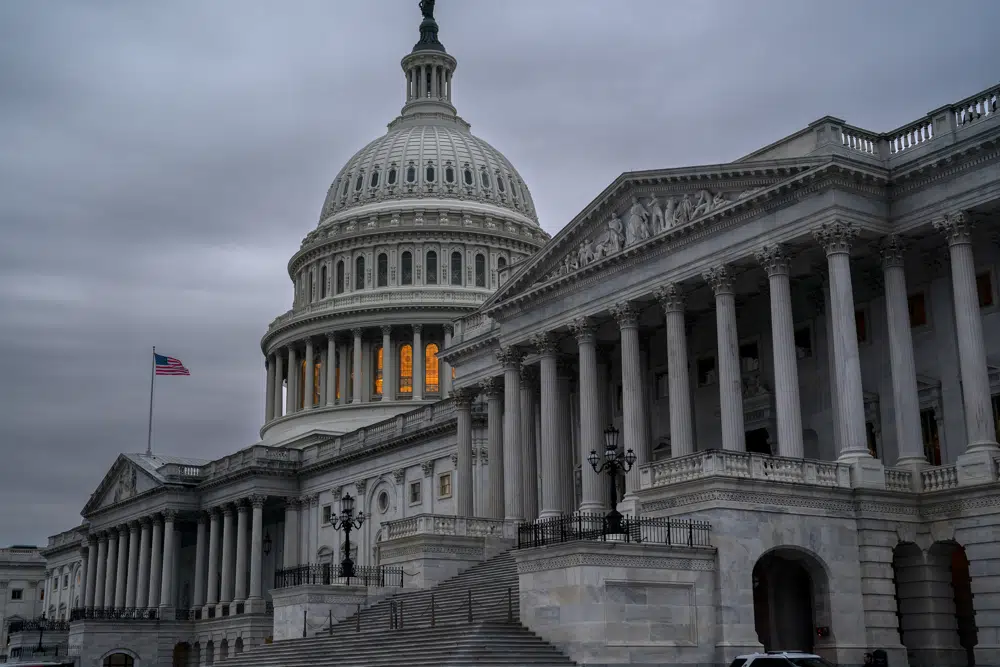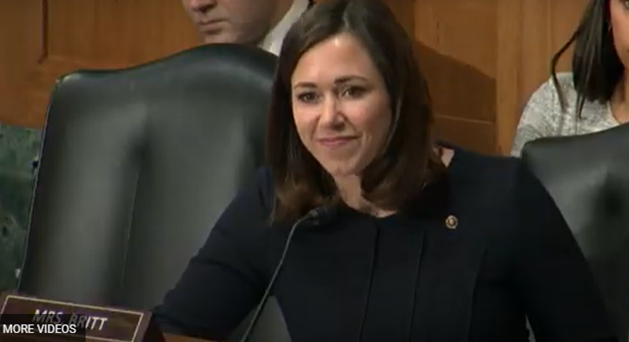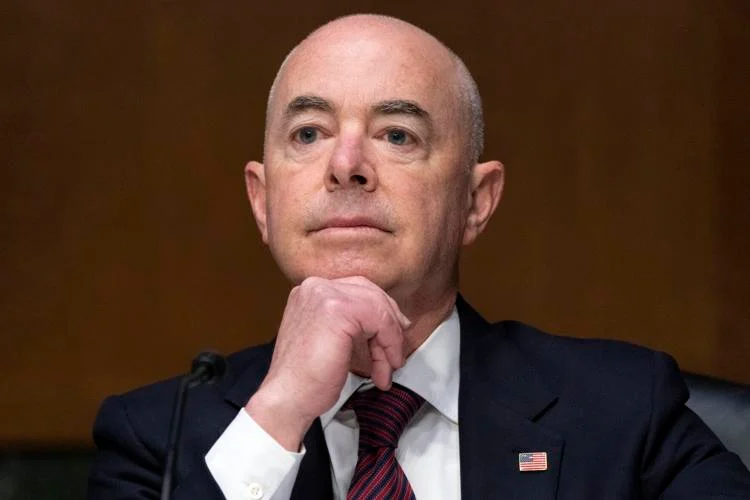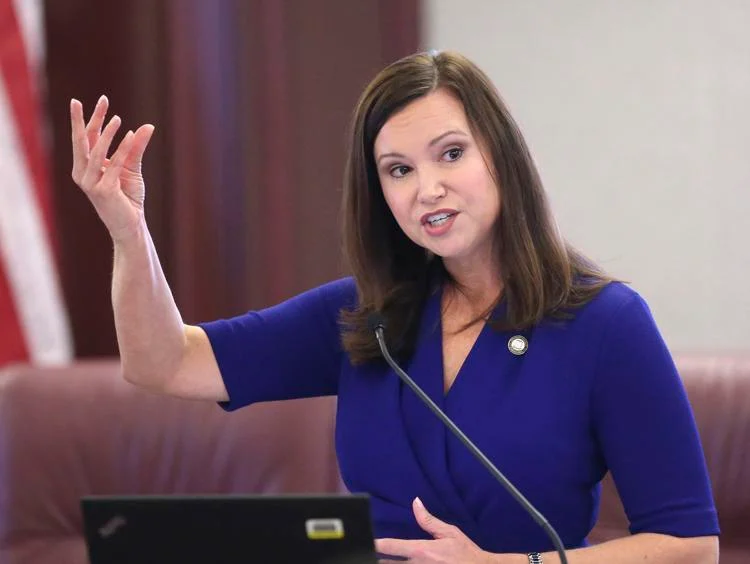Alabama’s overall infant mortality rate dropped – Black infant mortality rose; White infant mortality dropped

The Alabama Department of Public Health (ADPH) announced Thursday that the 2022 Alabama infant mortality rate was 6.7 deaths per 1,000 live births. That is a substantial decrease from the 7.6 rate in 2021. Despite this improvement, Alabama’s infant mortality rate remains higher than the provisional U.S. rate of 5.6 for 2022. While Alabama’s rate improved, the national rate trended upward for the first time in 20 years. The substantial racial disparities in infant mortality got much worse in 2022, though. Black mothers have the highest infant mortality rate in the state. The rate increased to 12.4 in 2022. That is up from 12.1 in 2021. White infant mortality rate, however, improved, dropping from 5.8 to 4.3 for White mothers. “I am pleased that both the 2022 infant mortality rate and the 3-year infant mortality rate of 7.1 for 2020-2022 have decreased to the lowest rate ever,” said Alabama State Public Health Officer Dr. Scott Harris. “Births with maternal smoking also declined to the lowest ever recorded. The enduring disparity between birth outcomes for Black and white mothers, however, is disturbing. Despite advances in healthcare, the Black infant mortality rate is consistently twice the rate for white mothers. We must address the many factors that contribute to infant mortality, including poverty, educational levels, and access to medical care.” Dr. Max Rogers is a State Committee of Public Health member. “We are heartened to learn that Alabama’s infant mortality rate declined in 2022,” said Dr. Rogers. If this positive trend is to continue, we must follow evidence-based practices that have been shown to save lives, such as providing access to timely, adequate prenatal care.” Dr. Eli Brown is another State Committee of Public Health member. “As an obstetrician/gynecologist who focuses on women’s health and delivering babies, I am troubled that a major predictor of whether a mother will deliver a baby preterm is her race. Improving outcomes for Black infants, along with infants of all races and ethnicities, is imperative,” said Dr. Brown. “Births to mothers in hospitals which have a higher volume of deliveries improve the chance of healthy survival for high-risk infants.” There were 58,162 births in Alabama in 2022, up slightly from 58,040 in 2021. Just 391 babies died in 2022. This is down from 443 infant deaths in 2021. The percentage of low-weight births decreased very slightly from 10.5 to 10.4. The percentage of births at less than 37 weeks of gestation also decreased from 13.1 to 12.8%. Low birth weight is defined as birth weight under 2,500 grams. Providing adequate prenatal care remains a problem. The percentage of births with adequate prenatal care decreased from 74.8 percent to 74.4 percent, and the percentage of births with no prenatal care increased from 2.2 percent to 2.3 percent in 2022. For births with no prenatal care, 60.0 percent were to white mothers, 21.2 percent were to Black mothers, and 18.8 were to mothers of other races. Medicaid was the payment source for 77.3 percent of births without prenatal care, and the majority of births to mothers with no prenatal care, 54.3 percent, were to mothers aged 20 to 29. Teenagers giving birth continue to decline; however, the percentage of births to white teen mothers increased from 5.4 to 5.5 percent. There was a decrease in births to Black teen mothers in 2022 from 8.5 to 7.2%. The percentage of births with maternal smoking was 4.8 in 2022. That is a substantial decrease from 6.1 in 2021. That is the lowest percentage ever recorded in Alabama. To connect with the author of this story or to comment, email brandonmreporter@gmail.com.
Congress sends stopgap spending bill to Biden’s desk, averting shutdown for now

Jennifer Shutt, Alabama Reflector WASHINGTON — U.S. senators voted 87-11 to approve legislation Wednesday that would fund the government into next year, clearing the measure for President Joe Biden’s signature. The stopgap spending bill, sometimes called a continuing resolution or CR, would fund part of the government until mid-January and the rest of the programs within the annual appropriations process through early February. But many hurdles likely remain before a final deal is reached on full-year spending. Senate Appropriations Chair Patty Murray, a Washington state Democrat, said just before the bill passed that she’s already turned her attention to “what happens next.” “Because avoiding a shutdown is so very far from mission accomplished,” Murray said. “We have a lot of work to do after the dust settles and before the next shutdown deadline comes up. Now is not the time to pat ourselves on the back.” That conference process between the House and Senate, Murray said, will require “listening to the other side, making some tough decisions, leaving out partisan nonstarters, and writing a bill that can actually pass into law.” “That is going to make a difference for people we represent at home,” Murray said. The House voted 336-95 to approve the stopgap legislation on Tuesday, and Biden is expected to sign it before current funding expires Friday at midnight. House members abruptly canceled further votes and left D.C. for their Thanksgiving recess on Wednesday morning, after far-right members objected to advancing a different spending bill. More time needed The stopgap spending bill is intended to give the Republican House, Democratic Senate, and White House more time to reach agreement on the dozen full-year spending bills. Congress was supposed to finish its work by the start of the fiscal year on Oct. 1 but is relying on the stopgap spending bill to continue current funding levels until a deal is negotiated. Reaching agreement is a well-established practice for the four leaders of the Appropriations Committees — Senate Chair Murray; Senate ranking member Susan Collins, a Maine Republican; House Chair Kay Granger, a Texas Republican; and House ranking member Rosa DeLauro, a Connecticut Democrat. The four lawmakers have years of experience working out bipartisan deals on spending bills as well as other legislation, but they all often caution against politics or outside influences meddling in those negotiations. “Appropriators left to their own devices” can reach agreement, they often say. But they rarely are left to do their work. New faces in the talks Sign-off on the final dozen full-year bills also falls to the four congressional leaders. Senate Majority Leader Chuck Schumer, a New York Democrat, and Senate Minority Leader Mitch McConnell, a Kentucky Republican, have plenty of experience negotiating spending bills and other consequential legislation with each other. Joining them at the table this year will be newly elected House Speaker Mike Johnson, a Louisiana Republican, and House Democratic Leader Hakeem Jeffries, of New York. Both are new to forging agreement on the annual appropriations bills, which last year totaled about $1.7 trillion. Congress will have until Jan. 19 to come to find compromise on the Agriculture-FDA, Energy-Water, Military Construction-VA, and Transportation-HUD spending bills. They’ll have until Feb. 2 to reach a deal on the Commerce-Justice-Science, Defense, Financial Services, Homeland Security, Interior-Environment, Labor-HHS-Education, Legislative Branch, and State-Foreign Operations appropriations bills. The Senate drafted its dozen spending bills to the total spending levels in the debt limit law that Congress approved this summer. But House Republicans wrote their bills more than $100 billion below those levels and added in dozens of hot-button policy proposals that stand no chance of becoming law. Collins said Wednesday that she met with Johnson last week to talk about total funding levels and the supplemental spending package that Congress could pass in the coming weeks to fund Israel, Ukraine, Taiwan, and U.S. border security. Ultimately, she said, congressional leaders will be the ones who decide whether to stick to the spending levels in the debt limit law or go in a different direction. “To me, it should be guided by the numbers in the (Fiscal Responsibility Act), plus the side agreement that was worked out between Speaker McCarthy and President Biden,” Collins said, referring to the debt limit deal from earlier this year and former House Speaker Kevin McCarthy. In the meantime, she suggested, the Senate could take up a four-bill spending package that includes the Commerce-Justice-Science, Energy-Water, Defense, and Labor-HHS-Education spending bills. “That might be a good four-bill package that we could bring,” Collins said. A senior appropriator, speaking on background, said Wednesday that a proposal was circulating that would have the Senate turn to that exact four-bill spending package once it gets back from the Thanksgiving recess. The Senate has approved a three-bill package with a broadly bipartisan vote and the House has approved seven bills without Democrats’ support. House exit The House was set to vote on two additional spending bills this week, but Republican leaders announced late Wednesday morning the chamber was done until after the Thanksgiving break. The canceled votes came after the House was unable to adopt the rule that would have set up debate on the Commerce-Justice-Science spending bill, amid anger on the stopgap spending bill from far-right members of the party. Senate Republican Whip John Thune, of South Dakota, said Wednesday it will be difficult to work out agreements between the two chambers on the dozen appropriations bills before the new deadlines. “One of the biggest challenges, obviously, is there’s a difference in numbers between the House and the Senate,” Thune said, noting the two chambers will have to deal with that when they begin the conference process. “And I think we have to give that a chance,” Thune said. “You’ve got a new speaker over there. It seems like people want to cooperate a bit, so let’s see if they can move bills.” Alabama Reflector is part of States Newsroom, a network of news bureaus supported by grants and a coalition of donors as a
Katie Britt says Basel III Endgame proposal ‘undermines proven strength of U.S. banking sector’

On Tuesday, U.S. Senator Katie Britt (R-Alabama) warned about what she believes would be the harmful effects of implementing the Basel III Endgame proposed rule recently issued jointly by the Board of Governors of the Federal Reserve System, the Federal Deposit Insurance Corporation, and the Office of the Comptroller of the Currency. The “Basel III endgame” is a proposal for stricter bank capital requirements aimed at ensuring the stability of big banks. Proponents believe that the proposal would modify large bank capital requirements to better reflect underlying risks and increase the consistency of how banks measure their risks. The changes would implement the final components of the Basel III agreement. The proposal would apply to banks with $100 billion in assets or more and to smaller firms with “significant” trading activities. Sen. Britt made her remarks as a participant in a Senate Banking, Housing, and Urban Affairs Committee hearing that featured testimony from the heads of four federal regulators with respective jurisdictions spanning the financial sector. The witnesses were the Vice Chair for Supervision of the Federal Reserve, Michael Barr; the Chair of the Federal Deposit Insurance Corporation, Martin Gruenberg; the Chair of the National Credit Union Administration, Todd Harper; and the Acting Comptroller of the Office of Controller of the Currency Michael Hsu. All four witnesses testified to the strength of the U.S. banking sector. Sen. Britt stated her view that the proposed rule, together with other rulemaking proposals – she views as reckless, risks severely weakening the financial sector, making it much harder for Main Street to get the capital that it needs due to the proposed punitive bank capital requirements. Britt noted that American banks regularly pass the Federal Reserve’s “stress tests,” proving these institutions are well-capitalized. In her line of questioning, Senator Britt noted the lack of a thorough justification and economic analysis cited in the proposal, as well as the fact that federal financial regulators have not considered the combined impacts of other concurrent proposals, specifically the long-term debt proposal and debit fee caps. Vice Chair Barr stated he would “welcome public comment” on both proposals and would be “happy to include [the analysis] in improving the rule.” “Since your last appearance before this committee in May, banks of all sizes have yet again proven their strength and ability to withstand unexpected volatility,” Britt asked. “In fact, quickly, I would like to just go down the row, and each of you, please answer with yes or no. Do you believe that the U.S. banking system at large is strong? Vice Chair Barr, we’ll start with you.” “Yes, I do,” Barr answered. “Yes, Senator,” Gruenberg replied. ‘Yes,” said Harper. “Yes,” answered HSU. “Great, thank you,” Britt continued. “So, for the record, all of you believe the U.S. banking sector is strong. Yet, over the last several months, we’ve seen a wholesale attempt to fundamentally alter our banking system. Not only do your agencies’ recent proposed rules undermine the proven strength of our banking sector, but they risk making it weaker, and it is Main Street America that will ultimately be punished. I have spoken directly with dozens of banks and credit unions of all sizes. It is clear that your proposed rules are so wide-reaching that they leave no financial institution untouched.” “Even more concerning, it’s apparent that the lack of effort from you as regulators to engage these institutions is startling,” said Britt. “Along with the absence of any stated rationale for making these key decisions, I want to start with the Basel Endgame rule. Let me follow up on a question that Senator Rounds asked. Vice Chair Barr, how long did your fellow board members have to review the proposed rule prior to it being issued?” “They had an extensive period of time,” Barr answered. “I’ll get you the exact number of days, but it was many, many weeks, I believe…well, anyway, I don’t want to guess. I’ll tell you the exact number of days for the record, but it was many weeks to review.” “Many weeks. So many weeks would be longer than two, then?” Britt asked. “Correct,” Barr replied. “OK, so your colleague, Governor (Lisa) Cook, testified in this committee on July 12 that she had not yet seen the Basel III proposal. … [J]ust two weeks later, the proposal was rolled out,” Britt said. “So, does that mean that your colleagues had less than two weeks to actually review the rule, or was she mistaken in that testimony?” “Each governor can decide how much they want to engage in the process,” Barr answered. “But she had been given the opportunity and then chose not to, I guess?” Britt continued. “I can’t speak specifically to what Governor Cook chose to do, but every governor was given the opportunity to meet with staff and to be briefed on the proposal in detail,” Barr responded. “OK, well, the rule assumes that banks are significantly undercapitalized for operational risk but yet cites no evidence to support this assumption,” Britt queried. “Not only are these risks already accounted for in stress testing, but the new standardized approach is not tailored to the varying business models of various banks. Vice Chair Barr, would you say you’ve done a thorough analysis to understand the impacts of the proposed operational risk requirements and what they would have on availability of mortgages on small businesses, small business loans, and retail credit to consumers?” “Thank you, Senator. The analysis goes into detail on these items,” Barr answered. “As I suggested, with respect to credit risk, whether that’s for mortgages or small businesses or consumers, just the combination of the credit risk proposal and operational risk is very, very small in relation to current rules.” “So, obviously, that is a yes, in the way that I view this, the Basel proposal is over a thousand pages with fewer than 20 pages dedicated to actual economic analysis,” Britt said. “Also absent is a study of the combined impacts of other concurrent proposals, like the long-term debt proposal and debit fee caps, despite the
Katie Britt votes to fund government and avert a government shutdown

The Senate voted 87 to 11 on Wednesday for legislation that would keep the government funded to the middle of January, avoiding a devastating government shutdown ahead of the Thanksgiving holiday. U.S. Senator Katie Britt voted for the package. The passage of the bipartisan continuing resolution (CR) spearheaded by new Speaker of the House Mike Johnson (R-Louisiana) keeps the government funded at current levels, putting off addressing out-of-control federal spending or the border situation until next year. Only 10 Republicans and one Democrat, Sen. Michael Bennet (D-Colorado), opposed the legislation. “Today, I joined my Senate colleagues in passing a commonsense Continuing Resolution that will prevent a Christmas season omnibus and ensure our men and women in uniform continue to be paid,” said Sen. Britt on X. “This measure, which was drafted by House Republicans, will ensure that Americans don’t see an interruption in critical government services – and our troops, border patrol agents, ICE officers, and Capitol Police will continue to be paid,” Britt continued. “Growing up outside the gates of Fort Rucker in the Wiregrass, I saw firsthand the tremendous sacrifices made by our men and women in uniform and the sacrifice made by their families. Those who give so much in service to our nation should not have to spend Thanksgiving being worried about whether or not their next paycheck will be here or their Christmas season wondering how they’ll put presents under the tree. This Continuing Resolution gives Congress the time to keep working to move all 12 appropriations bills in a transparent, accountable, and responsible manner. Let’s do our job and complete the critical work on behalf of the American people.” Senate and House conservatives pledged to do everything possible to avoid considering another omnibus spending package right before Christmas and New Year’s, which has become a Washington tradition. An amendment by U.S. Senator Rand Paul (R-Kentucky) that would have decreased government spending across the board by one percent was rejected in a 32 to 65 vote. Johnson’s CR passed the House with bipartisan support 336 to 95: 209 Democrats and 127 Republicans voting yes. Ninety-three Republicans and two Democrats voted no. The legislation would fund military construction, the Departments of Veterans Affairs, Agriculture, Transportation, Housing and Urban Development, and energy and water programs until January 19. It funds all other programs, including the Department of Defense and many non-defense social programs, until February 2. It also extends the current Farm Bill through September. It does not provide the President’s requested emergency funding for the war in Ukraine, support for Israel, or enhanced border funding. “I have good news for the American people. This Friday night, there will be no government shutdown,” said Senate Majority Leader Chuck Schumer (D-New York). “I am pleased that Speaker Johnson realized he needed Democratic votes to avoid a shutdown. If the Speaker is willing to work with Democrats and resist the siren song of the hard right in the House, then we can avoid shutdowns in the future.” The President has indicated that he will sign the bipartisan measure. To connect with the author of this story or to comment, email brandonmreporter@gmail.com.
Hampton Harris qualifies for second congressional district

Attorney Hampton Harris launched his campaign for Congress on Wednesday. Harris is one of eight Republicans who qualified Friday to run for Alabama’s redrawn Second Congressional District (CD2). Harris, a Montgomery native, said he is desperate to fight for traditional American values. “We cannot change Washington if we keep sending the same establishment politicians to Congress,” said Hampton Harris. “America is at a crossroads, and members of my generation are desperate to fight for the values that seem to be under assault from the radical left. Weakness won’t defeat the woke. We need strength, energy, and a disciplined commitment to our Constitutional rights.” Harris received a bachelor’s degree from Auburn University at Montgomery in economics with a minor in biology. Following graduation from college, Hampton worked in the emergency department at Baptist Health in Montgomery. He says that there, he witnessed firsthand the looming opioid crisis in Alabama and the failures of socialized medicine managed by a Washington bureaucracy that is far away from the people it is supposed to serve. Harris went on to earn a law degree from Samford University’s Cumberland School of Law in 2023. While in law school, Harris served as an advocate in the Cumberland School of Law Veterans Legal Assistance Clinic. There, he was able to work directly with veterans across Alabama. “Our working families and seniors are facing the biggest cost of living crisis since the Great Depression, and every day that Biden and the Democrats print more money, inflation gets worse,” Harris said. “They are destroying wealth for those who can least afford these disastrous government policies, and it must stop. I will stand with Speaker Mike Johnson and Congressional conservatives to uphold our God-given liberties and defeat the woke extremists that are weakening America.” Harris owns a real estate brokerage firm serving the Montgomery and Southeast Alabama markets. Harris is married. His wife, Abbi Harris, is also an attorney and serves this country as a member of the United States Air Force. Harris said that he has never wavered from his strong conservative roots. He grew up in a family of seven who were homeschooled by his mother. He says he benefited from his experience growing up in a Christian homeschooling household. Hampton said his upbringing helped him build his life around traditional family values. Previously, CD2 was 28% Black. The court-appointed special master redrew CD2 so that it is now 48.7% Black. The new Second Congressional District includes all of Montgomery County, the eastern half of the Blackbelt, the northern half of the Wiregrass, and part of southwest Alabama including most of the City of Mobile. According to data prepared by the special master, there is over a 94% likelihood that a Democrat will win CD2. The special master redistricted Second Congressional District incumbent Rep. Barry Moore (R-Enterprise) and all of Coffee County out of CD2 and into CD1. Moore is challenging incumbent Jerry Carl (R-Mobile) in the First District, so CD2 is a rare open seat. State Senator Greg Albritton of Atmore, former State Senator Dick Brewbaker, attorney Caroleene Dobson, former Congressional staffer and restauranteur Karla M. DuPriest, football star Wallace Gilberry, Stacey T. Shepperson, and Belinda Thomas are all also running in the Republican primary. The major party primaries are on March 5. If necessary. There will be a Republican primary runoff election on April 16. Thirteen Democrats have qualified to run in the Democratic primary. The Republican and Democratic nominees will face off on the November 5 presidential election ballot. To connect with the author of this story or to comment, email brandonmreporter@gmail.com.
MARC panelists predict 2024 election will be Donald Trump versus Joe Biden

On Saturday, four political pundits addressed the membership of the Mid-Alabama Republican Club (MARC) in Vestavia Hills about the coming 2024 presidential election year. The MARC panel included syndicated columnist former State Representative Steve Flowers (R-Troy). Flower’s columns can be read weekly here at Alabama Today. Alabama Today President and Publisher Apryl Marie Fogel served on the expert politico panel. Fogel is a former talk radio host in the Montgomery market. Rounding out the panel were Alabama Public Television’s Capital Journal host Todd Stacy and former Alabama Republican Chairman Marty Connors. Connors chairs the Alabama Center Right Group. The panel was moderated by former State Rep. Paul DeMarco (R-Homewood). DeMarco, a prominent Birmingham attorney, is also a former MARC President and the former Chairman of the Jefferson County Republican Party. DeMarco’s columns can also be read at Alabama Today. DeMarco asked the panel about the Alabama Republican Presidential Debate scheduled for next month in Tuscaloosa. The panel was skeptical that anyone on stage could win the GOP nomination. “I really think the debates are irrelevant,” Flowers said. “[Donald] Trump has the nomination.” “I imagine it will be Trump and Biden,” said Fogel. “We have some really great candidates, but does it matter?” Stacey said. “You have two candidates in Nikki Haley and Ron DeSantis.” Recent national polling has President Joe Biden’s job approval at just 37% – a new all-time low for a President in their third year. More troubling for Democrats is the polling in the swing states. In recent polls, Trump leads Biden 49 to 44 in Arizona, 49 to 43 in Georgia, 48 to 43 in Michigan, 52 to 41 in Nevada, 42 to 35 in Ohio, 48 to 44 in Pennsylvania, and 45 to 37 in Texas. The only swing state where Biden is currently leading Trump is Wisconsin, where he leads Trump to 47 to 45. When the New York Times substituted Gov. Ron DeSantis for Trump, he beats Biden 48 to 44 in Wisconsin. Former Ambassador Nikki Haley leads Biden 53 to 39 in Wisconsin – showing that support for Biden is extremely soft at this point. DeMarco asked the panelists if that polling was scaring Democrats. “The polls are really bad looking for Biden,” said Flowers. “I like what we are seeing in the polls,” said Fogel. “You can see a scenario where he bows out,” Stacy said. “He makes the decision that he doesn’t want to run again, and then they get another nominee.” “You can change horses, but it would have to be somebody who has already qualified,” Connors said. “I think it is too late for it to be somebody else,” said Flowers. On Tuesday, Republican Governor Tate Reeves won reelection with a margin of less than four points. Democratic Governor Andy Beshears defeated Attorney General David Cameron in Kentucky. Republicans in Virginia lost control of the General Assembly. Voters voted in favor of a pro-choice and pro-gender transition plank in their state Constitution. DeMarco asked if Tuesday’s election results were disappointing for Republicans. “Going into 2022, the Democrats are really on their heels,” Stacy said. “The economy is crummy. The President is crummy. Democrats should be on their heels.” “The lessons from Ohio and Virginia are on the abortion issue,” Stacy said. “Republicans have not been adept at this.” “Democrats say that Republicans want to take your rights away,” Stacy continued. “That is what they are going to cling to.” Connors said that Republicans need better messaging on how much they care for the child after it is born. “I don’t view those races as precursors to next year,” Flowers said. “There is a lot of infighting within the Republican party,” Fogel stated. Fogel recalled how the nation just watched the Republicans in the House of Representatives divide into different sides over who the Speaker was. “We need to remember who the enemy is,” Fogel said. DeMarco asked if the Republican National Committee Chair, Ronna Romney McDaniel, needs to be replaced. “I think there is a fatigue issue with her,” Connors said. “We have had three elections in a row under her where Republicans did not do well.” “I absolutely think we need a new Party Chair,” said Fogel. “We have lost the momentum on the ground.” “I am not sure how much it really matters,” said Stacy. “The RNC has become a lot less influential and powerful than it once was.” The MARC steering committee announced that it has recommended that Birmingham area attorney Janey Whitney be President of the Club for 2024. The MARC meets on the second Saturday of every month in the Vestavia Hills Public Library at 8:30 a.m. To connect with the author of this story or to comment, email brandonmreporter@gmail.com.
Cannabis firm denied license takes case to Alabama Court of Civil Appeals

Alander Rocha, Alabama Reflector A cannabis firm denied an Alabama medical marijuana license asked the Alabama Court of Civil Appeals last week to prevent a state commission from using prior results to award licenses. Specialty Medical Products, a Wetumpka-based medical cannabis firm that was denied a license for an integrated facility, alleged in a motion filed on Oct. 27 that the criteria used by evaluators are still unknown to applicants; that the commission failed to inform applicants what criteria they would be scored on in the application, and that the process was not properly adopted as a rule. “The application guide, however, does not set out the ‘minimum criteria’ for each exhibit,” the motion stated. “More importantly, the application guide fails to state what criteria are necessary to “exceed” or “thoroughly address” that minimum criteria. The company has been involved in the ongoing lawsuits, along with Alabama Always, another company denied a license. Montgomery Circuit Judge James Anderson on Nov. 3 denied a temporary restraining order to prevent the commission from using scores previously considered in the first two attempts to award the medical cannabis licenses. Anderson’s order denying the temporary restraining order did not specify a reason for the denial. The judge said in previous hearings that the commission should have the discretion to use or not use the controversial scores provided by the University of South Alabama (USA). USA brought in evaluators who reviewed the initial license applications. After the first award of licenses, the AMCC put a pause on the process following several “inconsistencies” in scoring the applications that would have led to “catastrophic” results if the licenses were issued. The companies asked the Alabama Court of Civil Appeals to weigh on whether a temporary restraining order should have been imposed. The restraining order would have prevented the commission from using rules issued that were not adopted in accordance with the Alabama Administrative Procedure Act. It also claims that the rules exceed the commission’s authority under the law passed legalizing medical cannabis. “The commission should be barred from using the scores, as the scoring system appears designed to award licenses [to] applicants who just simply cannot cultivate cannabis in 60 days, as the statute mandates,” said Will Somerville, an attorney representing Alabama Always, in a statement. The statute signed into law in 2021 states that cultivators and integrated facilities “demonstrate the ability to commence cultivation of cannabis within 60 days of application approval notification.” According to the motion from Specialty Medical Products, the application simply asked if companies could commence cultivation within 60 days, answered with “yes” or “no,” not “demonstrate” the ability to do so. “Dispensing with the scores is the best way to make sure patients in Alabama who can benefit from medical cannabis get the help they so desperately need,” he stated. The AMCC in October reset the medical cannabis licensing process and said all 90 applicants were back in the running for a license. The commission rescinded all awarded licenses and denials from an Aug. 10 meeting, which set the stage for a third round of license grants under rules adopted at a commission meeting in a previous October meeting. The new procedures allow commissioners to use the previous scores to decide on awards, and Chairman Rex Vaughn said at the meeting that commissioners had full discretion “when evaluating the suitability of all 90 applicants.” The new rules also give applicants an opportunity to contest deficiencies identified in their application and their score results. Presentations will be open to the public. Applicants can also respond to preliminary pass/fail and submit application material that were not previously filed due to the file size limitation. Brittany Peters, spokesperson for the commission, said they expect presentation to continue as scheduled. Presentations will take place between Nov. 27 and Dec. 8. A schedule of the presentation can be found here. Alabama Reflector is part of States Newsroom, a network of news bureaus supported by grants and a coalition of donors as a 501c(3) public charity. Alabama Reflector maintains editorial independence. Follow Alabama Reflector on Facebook and Twitter.
Border crisis, ‘rebuilding’ terror groups pose threat to U.S.

By Casey Harper | The Center Square House lawmakers held a hearing Wednesday about the growing threats to U.S. national security, including the crisis at the southern border, the growing threat of terrorism as well as overseas conflicts that could entangle the U.S. Department of Homeland Security Secretary Alejandro Mayorkas, FBI Director Christopher Wray, and National Counterterrorism Director Christine Abizaid testified at the hearing about the danger of worldwide threats. “Foreign terrorist groups like al-Qaeda and ISIS are rebuilding overseas, and they maintain worldwide networks of supporters that could target the homeland,” Mayorkas said in a prepared statement. The Ukraine and Israel wars as well as a possible invasion of Taiwan also put the U.S. in a difficult position. “Some of the greatest threats include: an open and lawless Southwest border, ask any border Sheriff or for that matter the mayor of NYC; the rising threat of terrorism; rogue nation-state actors and criminal elements seeking to do us harm; and efforts by foreign adversaries like the Chinese Communist Party to target our critical infrastructure,” House Committee on Homeland Security Chairman Mark Green, R-Tenn, said in his opening remarks at the hearing. “Of course, we also have the wars in Israel and Ukraine, and rising Chinese aggression in the Taiwan Strait and South China Sea.” The hearing comes after an effort from Rep. Marjorie Taylor Greene, R-Ga., to impeach Mayorkas narrowly failed in the House of Representatives Monday. Legislators referred it to the Homeland Security Committee, which is often a way of indefinitely tabling legislation. Mayorkas raised the concern of domestic terrorism in particular, something Wray has also warned about. “The threat of a ‘lone wolf’ actor attempting to exploit the conflict between Israel and Hamas and incited to violence by an ideology of hate is of particular concern,” Mayorkas testified. “Foreign terrorist organization and lone offender reactions based on perceptions of U.S. support to Israel could further escalate the threat to Jewish, Muslim, and Arab-American communities in the United States and to U.S. government officials. As the conflict endures, graphic visuals will likely continue to circulate online and garner significant media attention, potentially acting as a catalyst for various violent actors who have shared and continue to share this kind of material.” Wray has raised a similar concern, specifically naming Hamas, the Gaza-based terror group that killed more than 1,400 Israelis in October and took hundreds of hostages, including Americans. “Our top concern stems from lone offenders inspired by— or reacting to—the ongoing Israel-Hamas conflict, as they pose the most likely threat to Americans, especially Jewish, Muslim, and Arab-American communities in the United States,” Wray testified. “We have seen an increase in reported threats to Jewish and Muslim people, institutions, and houses of worship here in the United States and are moving quickly to mitigate them.” Millions of illegal migrants have come into the U.S. since President Joe Biden took office. Notably, hundreds of migrants were flagged as potential terrorists, raising major concerns about how Hamas, Hezbollah or other terror groups could exploit the border to infiltrate the U.S. As The Center Square previously reported, the U.S. Customs and Border Protection’s San Diego field office warned earlier this year that Hamas may try to send individuals to the U.S. through the southern border. The northern border, though, has also seen a high number of migrants with suspected terrorist sympathies. “San Diego Field Office Intelligence Unit (SDFO-FITU) assesses that individuals inspired by, or reacting to, the current Israel-Hamas conflict may attempt travel to or from the area of hostilities in the Middle East via circuitous transit across the Southwest border,” an unclassified document from the office reads. Mayorkas also pointed to another threat, namely hackers, which can be a lucrative business and also a dangerous weapon. “Malicious cyber activity targeting the United States has increased since Russia’s full invasion of Ukraine, a trend we expect to continue throughout the duration of the conflict,” he testified. “Within the past three years, we have seen numerous cybersecurity incidents impacting organizations of all sizes and disrupting critical services, from the Russian government’s compromise of the SolarWinds supply chain to the widespread vulnerabilities generated by open-source software like Log4j. “We believe there is significant under-reporting of ransomware and other cybersecurity incidents, and we assess that ransomware attacks targeting U.S. networks 6 will increase in the near- and long-terms,” he added. Republished with the permission of The Center Square.
Florida cracks down on organized retail theft

By Bethany Blankley | The Center Square contributor Florida continues to crack down on retail theft. Attorney General Ashley Moody’s Office of Statewide Prosecution has secured another sentence and restitution order for another leader of an organized retail theft ring in 15 counties. Just a few weeks ago, Moody announced the results of a recent racketeering investigation into another major operation targeting retail theft, which involved millions in stolen items and murder. Moody on Wednesday announced an eight-year prison sentence for Byron Johnson, who operated a theft ring in 15 counties that caused hundreds of thousands of dollars in losses to Home Depot stores. “In Florida, we are fighting back against organized retail theft,” Moody says. “We will not allow this crime, occurring rampantly in other parts of our country, to wreak havoc on our consumers and businesses.” Johnson’s conviction and sentencing resulted from a multi-agency operation involving the AG’s OSP, the Polk County Sheriff’s Office, and the Florida Department of Law Enforcement. The multi-agency investigation found that Johnson and four other defendants went to Home Depot stores statewide, rented heavy equipment, and never returned them. They then destroyed the attached GPS trackers and resold the stolen equipment online. At least 44 suspected thefts occurred over the course of the investigation. Defendants used stolen identifications and also misled unsuspecting individuals to use their IDs to rent the equipment. Most of the stolen items were sold on Facebook Marketplace, investigators found. Johnson was charged with “one count of grand theft, more than $100,000, a first-degree felony; one count of scheme to defraud, a third-degree felony; nine counts of dealing in stolen property, all second-degree felonies; and unlawful possession of the personal identification information of another person, a third-degree felony,” according to the AG’s office. He will serve eight years in prison, followed by five years probation, and pay $539,360 in restitution. Four other defendants were charged with grand theft of varying amounts, ranging from first to third-degree felonies. These cases are still pending, according to the AG’s OSP. Since 2019, the Office of Statewide Prosecution has secured an overall conviction rate of 99%. It’s tasked with prosecuting crimes that impact two or more judicial circuits in Florida. Most OSP charges resulted from multi-jurisdictional investigations. One includes a retail theft scam targeting multiple Walmart stores in Polk County. Of those involved, one is currently serving time in prison. Another is under the supervision of the Florida Department of Corrections. Arrest warrants are currently out for two alleged members. One is deceased. Another involves a retail theft scam operating in South Florida in at least nine judicial circuits. This scam caused over $20 million in losses to more than 20 different retailers. It involved dozens of serial retail thieves who “brought stolen items to a first-level illicit distributor,” who then allegedly sold the stolen items “to a higher-level distributor,” according to the investigation. The alleged thief at the top of the organization owned an Amazon storefront where he resold the stolen items to unsuspecting consumers nationwide. The first-level distributor was murdered and a separate investigation is ongoing. Republished with the permission of The Center Square.


